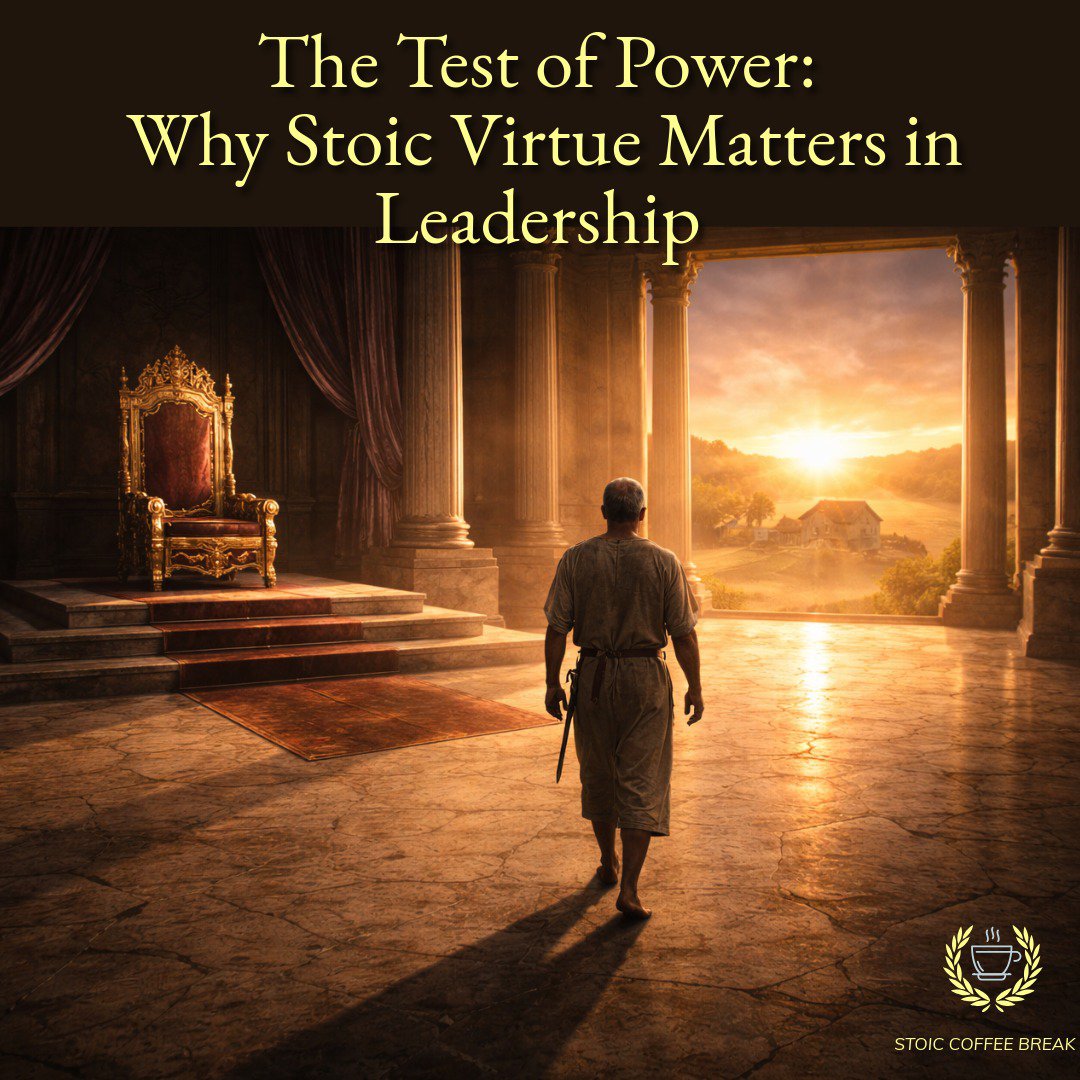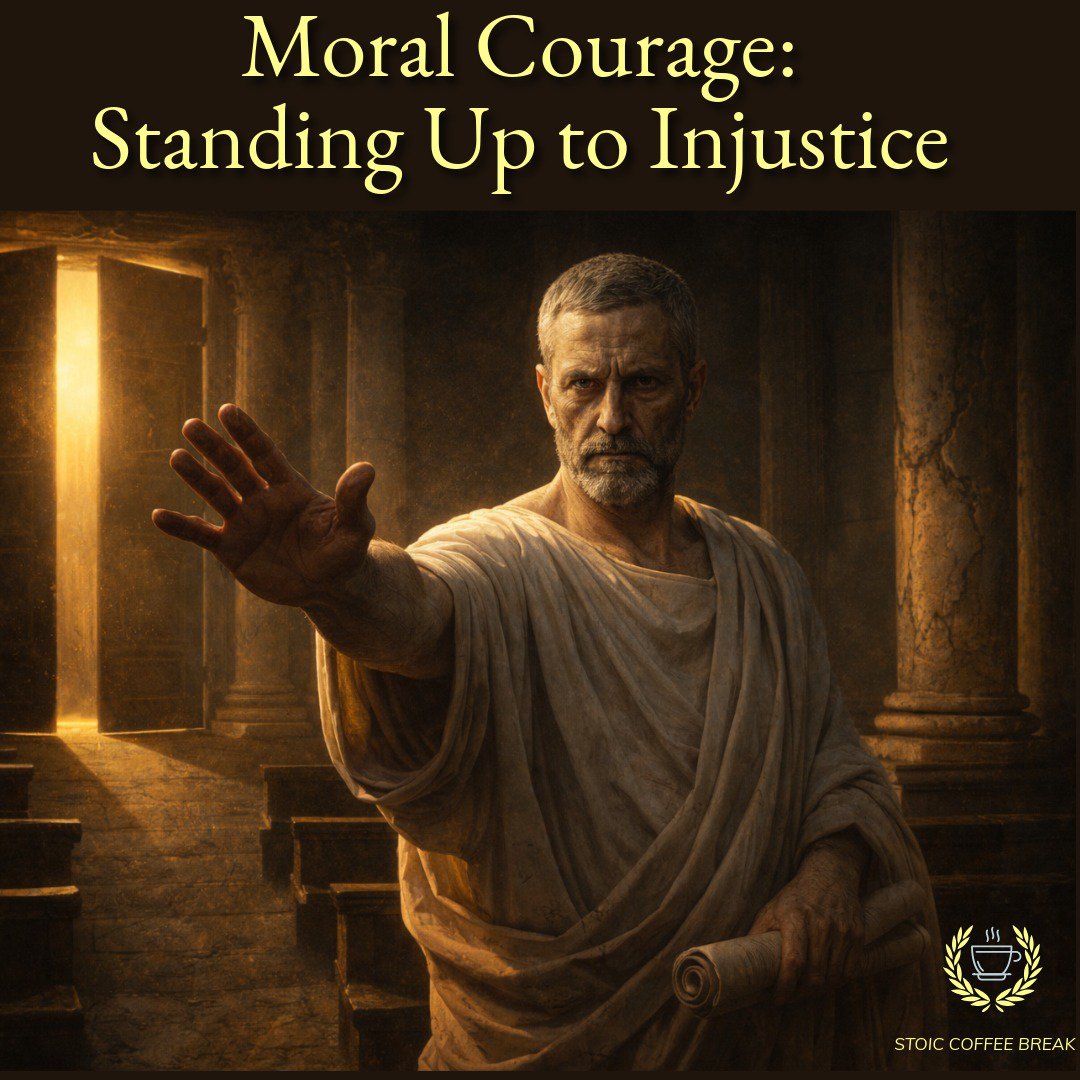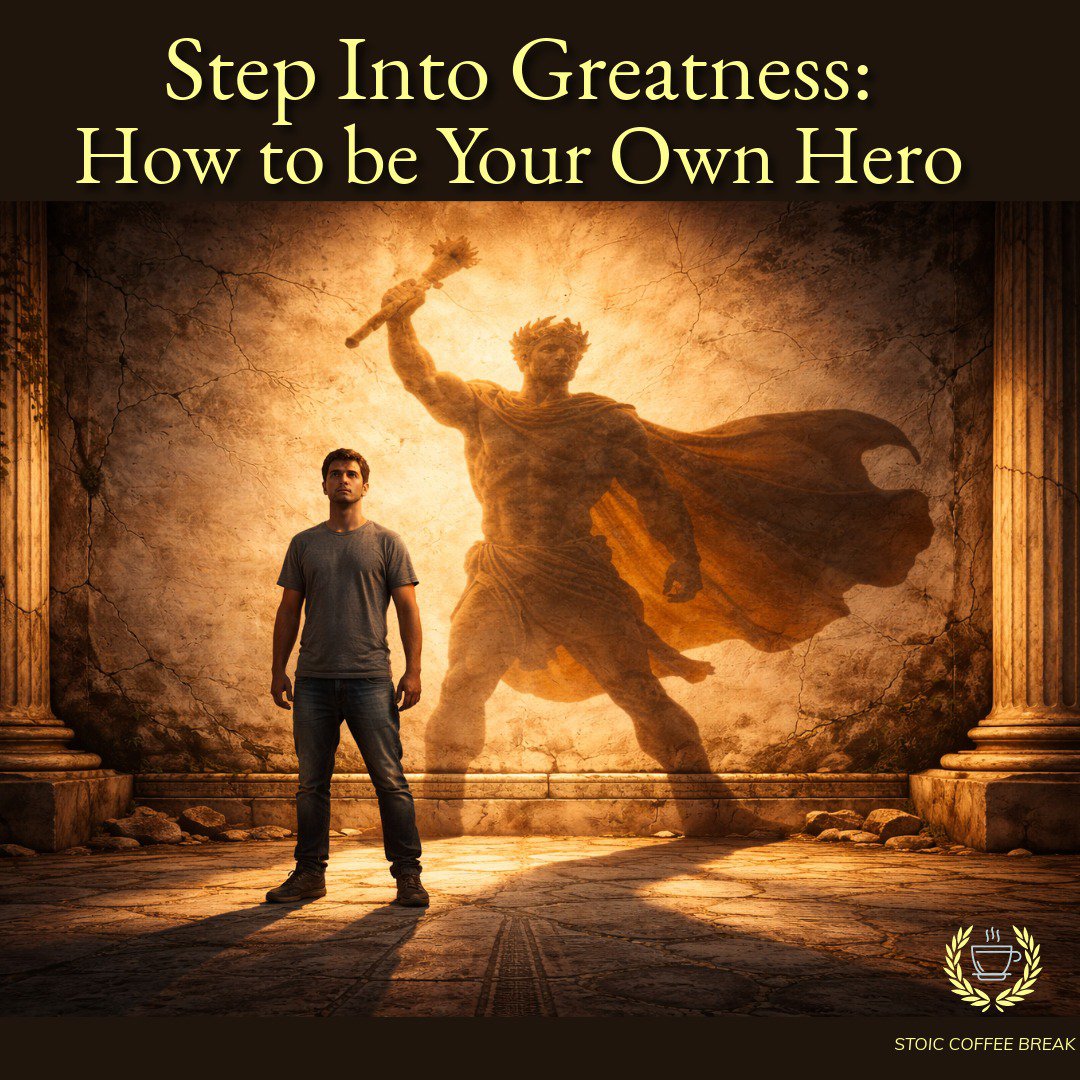
Are you aware of how your perspective influences how you see reality? Today I want to talk about how the Stoics teach us that our perspective shapes our reality.
“We don't see things as they are, we see them as we are.
— Anias Nin
Perception and Reality
Our reality is not an objective construct; it is a subjective experience shaped by our individual perceptions. These perceptions are the lens through which we view the world, influenced by our beliefs, past experiences, and emotional states. This lens filters every experience, interaction, and decision we make, often without our conscious awareness. Our perceptions profoundly shape our reality, molding our experiences, choices, and interactions with the world. Stoicism holds that our perceptions—how we see the world—play a critical role in our emotional and psychological state.
The Plank
“For there is nothing either good or bad, but thinking makes it so."
— Shakespeare (Hamlet)
The other day I stumbled on a perfect example of how our perceptions can impact us in a very literal way. There’s an interesting bunch of videos on YouTube about Richie’s Plank Experience. What this is, is a simple VR game where you take an elevator to the 15th floor of a virtual building. Once the elevator opens, you step out onto a plank that is about 12 inches wide, which is about 30 centimeters for those not in the US. The goal of the game is pretty simple. You walk out to the end of the plank and eat some virtual donuts. Then you can either jump off and fall to the ground, or turn around and go back to the elevator.
There are several videos of this on YouTube, but the one that I watched, took place on the streets of London where they asked passersby to try the game. What was fascinating was that even though people knew they were safe on a street in the middle of London, they still felt the same fear as if they were actually on a plank 15 stories high. Each person talked about how scary it was, how their hearts were racing, and one person even had his legs shaking with fear. There was one person though, who was able to override this fear better than the others, and was even skipping across the plank.
I found this so fascinating. Even though they rationally knew it was just a game, most of them couldn’t get their bodies to relax. They still felt like they were in danger. In a very literal sense, they put on a new lens that changed their perception of the world, and their unconscious and their bodies reacted to these perceptions.
Influencing Opinions
"It's not what you look at that matters, it's what you see."
— Henry David Thoreau
Our opinions are a direct outcome of our perceptions. For instance, two individuals can witness the same event and have entirely different interpretations based on their personal biases and past experiences. For example, in politics, where perceptions are heavily influenced by ideology, this leads to divergent opinions on the same issues. A conservative might view a tax increase as a burden on economic freedom, while a liberal might see it as a necessary step towards social equity. Here, their political ideologies, acting as a perceptual lens, shape their opinions of the same policy proposal.
Shaping Choices
Our choices, from the mundane to the life-changing, are also deeply influenced by our perceptions. Consider the decision to change careers. To someone with a growth mindset—a belief in the potential for personal development and improvement—a career change is an opportunity for advancement and learning. To someone with a fixed mindset, the same decision might seem fraught with risk and uncertainty, and as a sign of failure in their current path. The Stoics would argue that by shifting our perception to see the opportunity in the challenge, we can make choices that align with our true values and aspirations.
Interactions with the World
"Mankind are born for the sake of each other. So either teach or tolerate."
— Marcus Aurelius
How we interact with the world and others is a reflection of our internal perceptions. For example, if we perceive the world as hostile and uncaring, we may approach others with suspicion and reserve, potentially leading to isolation and loneliness. Conversely, viewing the world as a place of opportunity and kindness can lead us to form meaningful connections and engage with life more fully. Marcus Aurelius, another Stoic philosopher, emphasized the importance of perceiving the interconnectedness of all things and acting in harmony with this understanding for the betterment of oneself and society.
The Placebo Effect
“We are more often frightened than hurt; and we suffer more from imagination than from reality."
— Seneca
Our minds are powerful things and our perceptions of something can have real impacts in surprising ways. For example, the placebo effect is a powerful demonstration of how perception can alter our physical reality. Patients given a placebo, a treatment with no therapeutic effect, often experience an improvement in their condition simply because they believe they are receiving a real treatment. In many studies, patients were given were sugar pills and found relief from their symptoms. This phenomenon illustrates the capacity of the mind, guided by perception, to influence the body.
Social Media and Perception
Social media platforms are modern examples of how perceptions can be manipulated and, in turn, shape reality. Algorithms curate content that aligns with our existing beliefs and perceptions, reinforcing our worldviews and often creating echo chambers. This can intensify political polarization, as users are rarely exposed to opposing viewpoints, leading to a more divided reality based on perceived differences rather than actual ones. Because social media is also only selected slices of life, we only see what others are willing to share, which are usually just the highlights. We get a distorted view of who other people are, and what their lives are really like. Because of this, we make judgments about them based on very limited information.
Awareness of Perceptions
"Men are disturbed not by things, but by the view which they take of them."
—Epictetus
So why do we want to be aware of the perceptions that we have about the world around us?
Because those perceptions can either be the wind our sails that propel us forward to accomplish the things we set out to do, or they can be the millstone that keeps us not only stuck where we are, but often are the very thing that sink our ship even before it gets out of the harbor. The Stoics teach us that our perceptions are one of the only things that we have control over, and therefore can have the largest impact on our wellbeing and happiness.
By developing the awareness of the perceptions we have, we are able to recognize our own limiting believes and biases, and learn to see when they are holding us back. We can also choose to change our perceptions into something that keeps us open to possibilities, seeing the world in a more positive light, and let slights, insults, and frustrations slide off of us like water off a duck.
Stoic Mindfulness
"You have power over your mind—not outside events. Realize this, and you will find strength."
— Marcus Aurelius
How do we get better at managing our perceptions so they help us navigate the world in a happier and more productive way?
The Stoics offer a remedy to the potential distortions caused by our perceptions: the practice of mindfulness and the discipline of questioning our automatic interpretations of events. By becoming aware of how our perceptions shape our reality and actively challenging them, we can align our perceptions more closely with objective reality, or at least a more constructive subjective reality.
When something happens to us, we have what the Stoic call an “impression”, meaning, we observe what happens to us. We take these impressions and make a judgement about it, and that judgment leads us to take some action, usually driven by some emotion. But the Stoics recommend that we take a moment and try to see these impressions at their most basic level.
Did someone say something you thought was offensive? If we break this down to its most basic elements, what really happened was that someone made some sounds with their mouth, we interpreted what they said by thinking about those sounds, and we made a judgment about what those sounds meant. Recognizing your own judgments about what the other person said gives you the space to choose what you want to do about it. This is what Marcus Aurelius mean when he said, “Choose not to be harmed and you won’t be.”
Now this doesn’t mean that you don’t have any feelings surrounding the things that happen to you. If you partner breaks up with you, it hurts, and it’s okay to feel hurt. There is nothing wrong with feeling those uncomfortable or negative emotions. It’s okay to grieve the loss of the relationship and to feel the loss of the future that you thought you would have. What’s important is that you are aware of those feelings and your perceptions, so that even if you feel the hurt, you make choices not from the hurt, but from your rationality, principles, and values. Rather than lashing out from of hurt or spite, you can act with honor and compassion and make the situation easier on both parties. As Seneca said, “The consequences of anger are often far worse than the thing that caused the anger.”
Higher View
Another way to shift our perspective is to take what the Stoics call “the higher view”. What this means is that the more we can zoom out from our current perspective and look at situation from a much higher view. For example, if you can imagine viewing your current situation from 30,000 feet. Think about how small you look. Think about all the other people in your neighborhood, your city, and even the world and all the things they are working on and struggling with at the same moment. It gives you a perspective on how small you are and how small the things you are worried about are. But it also gives a perspective on the interconnectedness of us all.
This is actually a documented phenomenon called the “overview effect”. Astronauts who spend time in space often talk about how their whole perspective on life shifts when they see the Earth, the “pale blue dot” as Carl Sagan, a prominent physicist would call it. This literal change in perspective, changes how they view the rest of the world. Seeing the Earth and its thin layer of atmosphere, they see how fragile, tiny, and almost insignificant our planet seems in the vastness of space. They often gain a feeling of connectedness with the rest of humanity, a sense of compassion for all inhabits of the world, and a great sadness at the conflicts and struggles that plague us as a species.
Hayley Arceneaux, a physician assistant who spent several days in space, saw the planet through the context of her profession. She wrote, “It felt unifying, but it also made me think of healthcare disparities in a different way. How can someone born on that side of the globe have a completely different prognosis from someone born over here? I could see the nations all at once, and it felt more unfair than ever, the ugliness that existed within all of that beauty.”
Conclusion
Our perceptions are not merely passive windows to the world but active constructors of our reality. They shape our opinions, influence our choices, and dictate how we interact with the world. Stoicism teaches us the importance of examining and, when necessary, adjusting our perceptions to live a more fulfilling and less disturbed life. By understanding the power of perception, we can begin to see not just the world as it appears to be, but as it could be, through a lens of compassion, reason, and openness to change.
Hello friends! Thanks for listening.
Want to take these principles to the next level? Join the Stoic Coffee House Community!
Stop by the website at stoic.coffee where you can sign up for our newsletter, and buy some great looking shirts and hoodies at the Stoic Coffee Shop.
Like the theme song? You can find it here from my alter ego. 🙂
Find me on instagram, twitter, or threads
Lastly if you know of someone that would benefit from or appreciate this podcast, please share it. Word of mouth is the best way to help this podcast grow.
Thanks again for listening.


